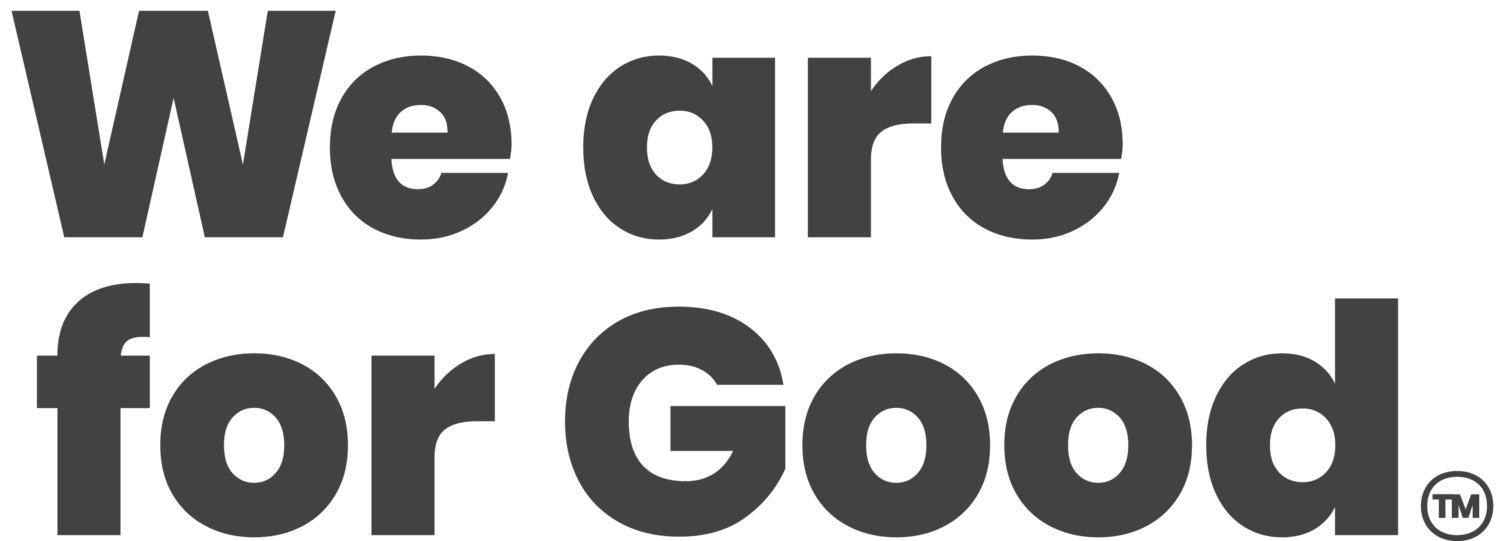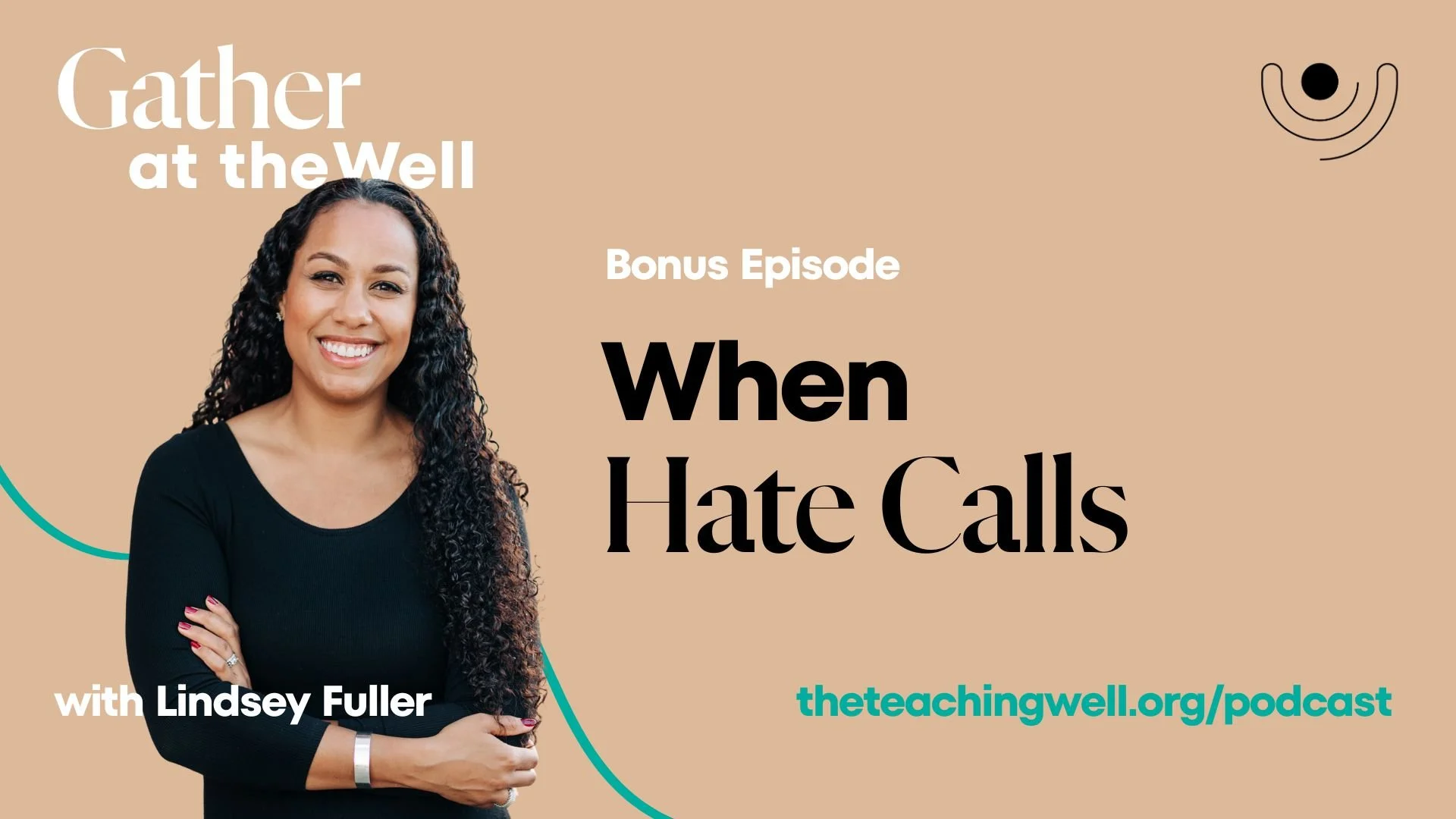Gather At The Well: When Hate Calls - Lindsey Fuller
Listen to this episode
Overview
"I could have kept it a secret. I could have let my fear and anxiety dictate my behaviors. But instead, I want to leave some of the baggage at the door and complete this experience through my nervous system." – Lindsey
Are you prepared for the moment hate calls?
In this powerful bonus episode of Gather at the Well, Lindsey opens up about a deeply personal and unsettling experience — receiving a violent, harassing phone call. Lindsey walks us through her process of emotional regulation, and the practical steps she took to protect herself and her team.
Having a plan — and a strong support system — is essential. This episode introduces the "Continuous Replenishment Cycle," a practical framework for navigating crises with self-care, emotional grounding, and community support at its core. Lindsey also shares the three components of a crisis and safety plan - prevention, intervention, and postvention - and shares specific policies and practices her organization has implemented.
Begin designing your safety plan. Keep yourself and your people safe. Fortify your organization, so you’re ready to take action and respond instead of react. We’re your partners and we have your back. ❤️
Episode Transcript
Download Full Episode Transcript Here
Episode Highlights
Tone-setting and Lindsey’s personal experience (1:00)
Somatic practice (5:00)
The Continuous Replenishment Cycle (CRC) (6:00)
Knowing your support system (9:00)
Designing a crisis and safety plan (14:00)
Affirmations (18:15)
Homework (18:55)
Critical Hope: It's so easy to go on this pendulum swing of either being reactive or inactive. Slow the swing. Do the work. Get in your body, your brain, and stay in your values. Then get ready to take action that way you're responding and not reacting. (22:20)
Affirmations
I am safe.
I am supported.
I am resourced.
I can heal.
In the Face of a Crisis:
Tend to your basic needs
Engage in somatics to get your frontal lobe back online - access your reason and brilliance
Do the work
Activate appropriate community support
Repeat
Reflection Questions
(Do this at baseline. Don’t wait for a crisis.)
Write down 1-3 names of people in your life who you can access in a crisis moment - with the same or more regulatory capacity
Write down your CRC - Continuous Replenishment Cycle. You know yourself.
Begin designing your plan. Keep yourself and your people safe. Fortify your organization.
Powerful Quotes
“I could have kept it a secret, I could have let my fear and anxiety dictate my behaviors, but instead I want to leave some of the baggage at the door and complete this experience through my nervous system.” -Lindsey
“In a crisis, there is no masking, it’s just your raw identity and truth.” -Lindsey
“It’s critical to protect yourself from others’ reactions.” -Lindsey
“As a verbal processor, it can interrupt your clarity seeking.” -Lindsey
“I’m making a case for people who are also skilled at self-regulating. I found that, understandably, this event activated fear, stress, anxiety and anger with everyone I talked to.” -Lindsey
“Everyone is entitled to respond, but you might not get what you need, as the person who experienced this crisis event.” -Lindsey
“I have a high capacity and resilience in crisis and emergency, but not everyone has that crisis tolerance.” -Lindsey
“Most folks in my personal life showed up in reactivity, with lots of care.” -Lindsey
“Know your people. After a crisis, know who you can go to to support you in showing up in your power.” -Lindsey
“A part of the blessing of this challenge, it has propelled our organization to externalize a crisis plan across three lines.” -Lindsey
“I know it's so easy to go on this pendulum swing of either being reactive or inactive. Being defensive and angry and being ready to take up arms, or that inactivity. “Let me just wait until home.” or “I could just push this off a couple more weeks. I'll deal with this at the next break.” My invitation for all of us is to slow the swing, do the work, to get in your body, in your brain, and to stay in your values, and then get ready to take action that way you're responding and not reacting.” -Lindsey
Connect with The Teaching Well
Website / LinkedIn / X / Instagram / Facebook




